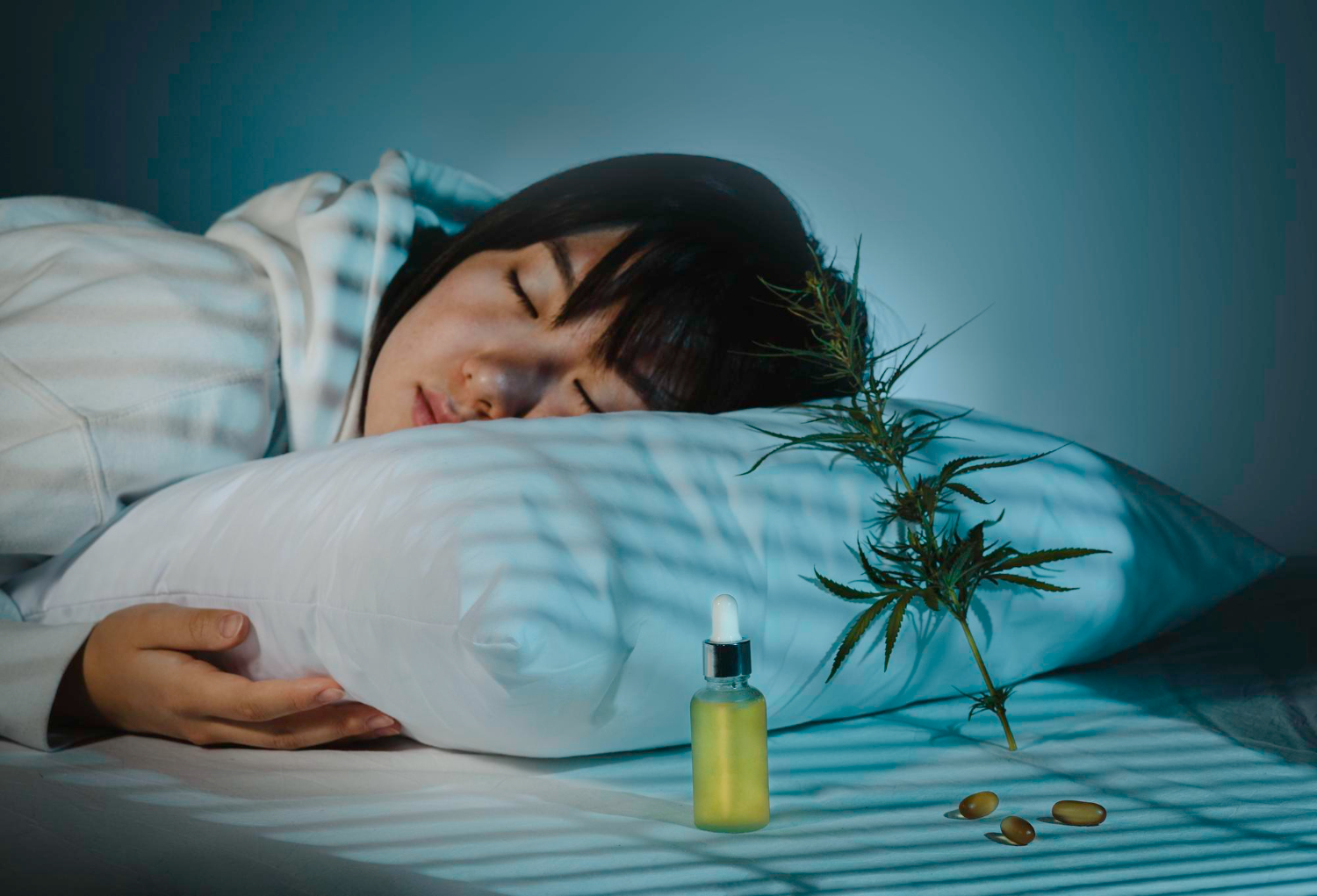Many people struggle with sleep issues, from insomnia to anxiety-driven restlessness. CBD, a compound derived from cannabis, has gained attention as a potential solution for improving sleep quality. Research shows that CBD may help with sleep problems by addressing underlying issues like anxiety and stress, allowing for a more restful night.
With a growing range of products available, such as oils, gummies, and capsules, users are curious about which options might work best for them. Some studies indicate that CBD can influence the body’s endocannabinoid system, which plays a role in regulating sleep patterns. As interest in CBD continues to rise, so does the need for reliable information on its effects and best practices for use.
Taking CBD for sleep is becoming increasingly popular, but it’s essential to know the facts. Exploring the benefits and risks can guide users in making informed choices about using CBD as a sleep aid. This article will delve into the effectiveness of CBD for sleep and help readers determine if it could be a viable option for their nighttime routines.
Understanding CBD
CBD, or cannabidiol, is a compound derived from the cannabis plant. It has gained attention for its potential effects on sleep, among other health benefits. This section explores the key aspects of CBD, including what it is, how it interacts with the body, and the various forms it comes in.
What Is CBD?
CBD is one of many cannabinoids found in cannabis. Unlike THC, its more famous counterpart, CBD does not produce a psychoactive effect, meaning it does not cause a “high.” It is extracted from hemp plants, which contain less than 0.3% THC.
Many people use CBD for its potential therapeutic benefits. Studies suggest it may help with anxiety, pain relief, and sleep disruptions. It’s available in various products such as oils, capsules, and topical creams.
The legality of CBD varies by region. In many places, it is legal, especially when derived from hemp. However, individuals should verify local laws before purchasing.
The Endocannabinoid System and Sleep
The endocannabinoid system (ECS) plays a crucial role in regulating various bodily functions, including sleep. This system consists of receptors, endocannabinoids, and enzymes. CBD interacts with ECS receptors, particularly CB1 and CB2, which are found in the brain and immune system.
Research indicates that CBD may help improve sleep quality by influencing these receptors. It is believed to reduce anxiety and pain, both of which can interfere with sleep.
Additionally, a 2019 study showed that many participants experienced better sleep quality after using CBD. This points to its potential as a natural sleep aid. However, more extensive studies are required to fully understand its impact on sleep.
Different Forms of CBD
CBD comes in several forms, each offering unique ways to consume it. Common forms include:
- Oils and Tinctures: These are taken sublingually and absorbed quickly into the bloodstream.
- Capsules: These provide a consistent dosage but may take longer to take effect.
- Topicals: Creams and balms can be applied directly to the skin for localized relief.
- Edibles: Gummies and other food items allow for convenient and discreet consumption.
Each form varies in potency and timing of effects. Users should consider their lifestyle and preferences when selecting a form.
CBD and Sleep
Cannabidiol (CBD) is gaining attention as a possible aid for sleep issues. Research is exploring how it might help improve sleep quality and what benefits it may offer users.
Research on CBD for Sleep
Studies on CBD and sleep are still developing. A 2019 study showed that some patients reported better sleep quality when using CBD. This suggests that CBD might help some individuals fall asleep more easily.
However, many studies indicate that further research is needed. Some clinical trials focus on how CBD impacts those with diagnosed insomnia and other sleep disorders. This research aims to establish clearer evidence about the effectiveness of CBD for sleep-related issues.
Potential Benefits of Using CBD for Sleep
CBD is thought to offer several benefits for sleep. Some users report that it helps them fall asleep faster and stay asleep longer. This could be especially helpful for those dealing with challenges like anxiety or stress.
Another potential benefit is that CBD may help improve overall sleep quality. It might decrease instances of waking up during the night. Some research also indicates it could help with conditions like PTSD and chronic pain, which often disrupt sleep patterns.
How CBD May Affect Sleep Quality
The impact of CBD on sleep may vary depending on the dosage and individual responses. CBD interacts with the body’s endocannabinoid system, which plays a role in regulating sleep and mood.
By influencing this system, CBD may help promote relaxation and reduce anxiety, leading to better sleep. Some users find that CBD oils, capsules, or gummies work best for them. It is important for users to note that results can depend on various factors, including individual body chemistry and existing health conditions.
Using CBD for Better Sleep
Many people are exploring CBD as a solution for sleep issues. Understanding the appropriate dosage and timing can enhance its effectiveness for better sleep.
Appropriate CBD Dosage for Sleep
Finding the right dosage of CBD for sleep can vary by individual. Research suggests starting with a low dose and gradually increasing it until the desired effect is achieved.
Typical dosages range from 10 mg to 40 mg per day.
- Low Dose: 10-15 mg for mild issues.
- Moderate Dose: 20-30 mg typically helps with moderate sleep disturbances.
- High Dose: 30-50 mg may be used for severe sleep problems, but it’s wise to consult a healthcare provider.
Every person reacts differently to CBD, so keeping a journal can help track effects and adjust the dosage accordingly.
Best Times to Take CBD
Timing plays a crucial role in how effective CBD is for promoting sleep. Most experts recommend taking CBD 30-60 minutes before bed.
- Evening Routine: Incorporating CBD into an evening routine can signal the body that it is time to wind down.
- Consistency: Using CBD at the same time each night may also help establish a sleep pattern.
For those using CBD for anxiety that interferes with sleep, taking it earlier in the evening can reduce stress throughout the night. Always consider personal needs and consult with a professional if unsure about timing or dosage.
Safety and Considerations
Using CBD for sleep can be effective, but it is important to be aware of safety and other factors. This includes potential side effects, interactions with medications, and the importance of choosing quality products.
Potential Side Effects
CBD is generally considered safe, but some users may experience side effects. Common side effects include:
- Drowsiness: While CBD may help with sleep, it can also cause unwanted daytime drowsiness.
- Dry Mouth: Many CBD users report feeling thirsty after use.
- Changes in Appetite: Some might find their hunger increases or decreases.
- Diarrhea: High doses of CBD can lead to gastrointestinal issues.
Understanding one’s own body and how it reacts to CBD is crucial. Consulting with a healthcare professional can help determine the ideal dosage and assess individual risks.
Interactions with Other Medications
CBD can interact with various medications, affecting how they work. It is important to consider potential interactions, especially with:
- Blood Thinners: CBD may enhance the effects of blood-thinning medications, increasing the risk of bleeding.
- Antidepressants: Those on antidepressants should be cautious, as CBD can alter their effectiveness.
- Antiepileptic Drugs: CBD can affect the metabolism of certain anticonvulsants.
Always inform a healthcare provider about all medications being taken before starting CBD. This helps prevent adverse effects and ensures safe use.
Choosing Quality CBD Products
Selecting high-quality CBD products is crucial for safety and effectiveness. Here are some tips to consider:
- Check for Third-Party Testing: Reliable brands should provide lab results verifying product contents.
- Look for Full-Spectrum or Broad-Spectrum Options: These may offer better benefits due to the entourage effect.
- Read Labels Carefully: Ensure the product contains no harmful additives or artificial ingredients.
Quality products usually come from reputable companies that prioritize transparency and safety. Investing time in research can uncover effective CBD options tailored to individual needs.



